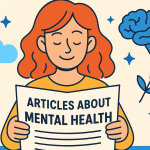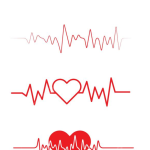Do you ever feel emotionally drained for no clear reason — as if you’re functioning, but not really living? If yes, you’re not alone. Millions of adults worldwide experience bad mental health at some point, yet few talk openly about it.
In 2026, as modern life gets faster and more connected, bad mental health is quietly becoming one of the biggest global wellness challenges. The World Health Organization estimates that 1 in 4 people will struggle with mental or emotional issues in their lifetime. From burnout to anxiety and digital overload, our minds are under constant pressure.
This guide breaks down what bad mental health really means, the causes behind it, current global trends, and simple daily steps you can take to rebuild your emotional balance — no complicated therapy terms, just practical, friendly advice that works.
What Is Bad Mental Health?
Bad mental health doesn’t always mean you have a diagnosed disorder. It’s a state where your emotional and psychological well-being is negatively affected — leaving you feeling anxious, tired, or detached from the world.
Key Signs You Might Be Struggling
You constantly feel tired or unmotivated.
Your sleep or appetite has changed.
You’re more irritable or easily overwhelmed.
You withdraw from friends and family.
You find it hard to focus or make decisions.
Everyone has bad days, but when these symptoms last more than two weeks or begin to affect your relationships, work, or self-esteem — it’s time to take it seriously.
Bad Mental Health vs. Mental Illness
The term “bad mental health” describes a temporary decline in mental well-being, while “mental illness” refers to clinically diagnosed conditions such as depression, anxiety disorders, or PTSD.
Think of bad mental health as a warning signal — a phase your mind uses to tell you something is off balance. With awareness and care, most people can reverse it before it becomes a more severe condition.
Why Bad Mental Health Is on the Rise in 2026
The global mental health landscape is shifting fast. Experts predict that stress-related conditions and digital fatigue will be two of the biggest health challenges this decade.
1. Work and Burnout
Post-pandemic hybrid work blurred the boundaries between home and career. According to recent wellness reports, nearly 60% of workers say they feel mentally exhausted, even when working fewer hours. Constant availability, pressure to perform, and lack of rest create emotional strain.
2. Digital Overload
In 2026, the average person spends over 6 hours a day online. While technology connects us, it also fuels comparison, anxiety, and attention fatigue. Social media perfectionism can make people feel “not enough,” worsening poor mental health.
3. Financial and Global Stress
Economic instability, inflation, and geopolitical uncertainty have increased collective anxiety. Adults worry about job security, future prospects, and the cost of living — all of which heighten emotional tension.
4. Loneliness and Disconnection
Despite being digitally connected, people feel more isolated than ever. Studies show loneliness increases the risk of bad mental health by up to 40%.
5. Youth and Social Media Pressure
Young adults and teens face unprecedented levels of stress, comparison, and cyberbullying. Many feel pressure to achieve early success or match curated lifestyles online — creating silent suffering.
The Hidden Causes Behind Bad Mental Health
1. Chronic Stress
Constant stress triggers an overproduction of cortisol — the “stress hormone” — which disrupts sleep, mood, and concentration. Over time, it leads to burnout and emotional fatigue.
2. Poor Lifestyle Habits
Skipping meals, lack of exercise, and erratic sleep patterns directly impact brain chemistry. Diets low in omega-3 fats and vitamins can also worsen mood.
3. Negative Thinking Patterns
Overthinking, self-criticism, and catastrophic thinking create mental clutter that feeds bad mental health. Breaking these cycles takes conscious effort and practice.
4. Lack of Purpose or Fulfilment
Feeling “stuck” in life or disconnected from personal goals often triggers emotional emptiness. Without meaning, motivation and joy fade quickly.
5. Social Comparison
Constantly measuring your life against others online distorts self-worth and can lead to chronic dissatisfaction and sadness.
How to Recognize the Early Signs of Bad Mental Health
Bad mental health rarely appears overnight — it builds up gradually. Here are some red flags to look out for:
Emotional Symptoms
Persistent sadness or irritability
Feelings of guilt or hopelessness
Sudden mood swings
Cognitive Symptoms
Inability to focus or remember things
Overwhelming worry
Difficulty making decisions
Physical Symptoms
Muscle tension or fatigue
Headaches or stomach issues
Changes in weight or appetite
Recognising these signs early is the first step toward healing.
How to Improve Bad Mental Health: Step-by-Step Strategies
1. Prioritize Sleep and Nutrition
Your mind cannot recover if your body is neglected.
Aim for 7–8 hours of quality sleep each night.
Reduce caffeine and screen exposure before bed.
Eat balanced meals rich in fruits, vegetables, and lean proteins.
Stay hydrated and limit processed foods.
2. Move Every Day
Exercise releases endorphins — natural mood boosters. You don’t need an expensive gym membership; even a 20-minute walk or dance break can help regulate emotions and reduce anxiety.
3. Limit Screen Time
Set daily limits on social media use. Try “digital detox” weekends or keep your phone away during meals. Replace scrolling with reading, journaling, or hobbies.
4. Practice Mindfulness and Gratitude
Mindfulness helps quiet your racing thoughts. Spend a few minutes daily noticing your breath, surroundings, or emotions without judgment. Writing three things you’re grateful for each day can rewire your mindset for positivity.
5. Build a Support System
Talk to someone you trust — a friend, family member, or counsellor. Sharing your struggles reduces emotional load and prevents isolation. If you’re struggling deeply, professional therapy or online counselling can be life-changing.
6. Set Small, Achievable Goals
Instead of trying to “fix everything,” start small. Clean one room, go for one walk, or finish one small task. Progress fuels motivation, and motivation builds mental strength.
7. Reduce Negative Input
Avoid toxic environments — whether online or offline. Surround yourself with people who uplift and inspire you. Positive influences make recovery faster.
Preventing Bad Mental Health in the Long Run
Create a Routine
A structured day provides stability and predictability — key factors for mental wellness. Wake up, eat, and sleep at consistent times.
Nurture Social Bonds
Healthy relationships are a natural antidepressant. Meet friends regularly, join community activities, or volunteer — connection heals.
Practice Self-Compassion
You are human. You will have off days. Instead of criticising yourself, show kindness — speak to yourself like you would to a friend.
Use Technology Mindfully
Follow positive accounts, unsubscribe from negativity, and use apps that support relaxation rather than comparison.
Seek Help When Needed
Therapy is not a sign of weakness; it’s an act of courage. Psychologists, counsellors, and helplines exist to help you navigate tough times. You don’t have to face it alone.
2026 Mental Health Trends Worth Knowing
Here are some major mental wellness trends shaping 2026:
AI Therapy & Digital Counselling: AI-based mental health apps like Wysa, MindDoc, and Calmly are providing low-cost emotional support globally.
Holistic Healing: Combining therapy with yoga, nutrition, and nature therapy is gaining popularity.
Corporate Mental Wellness Programs: Companies are investing in employee resilience programs to reduce burnout.
Mindful Tech Usage: “Digital minimalism” is becoming a lifestyle choice to reduce cognitive overload.
Global Mental Health Advocacy: Governments are investing in mental health infrastructure, making care more accessible.
Conclusion: You Can Heal From Bad Mental Health
Bad mental health doesn’t define you — it’s simply a signal that you need care, balance, and rest. Healing takes time, but with consistency and compassion, you can rebuild a happier, more peaceful mindset.
Start today:
✨ Take a deep breath.
✨ Reach out to someone you trust.
✨ Do one small thing that brings you joy.
You are not broken — just human, and healing is absolutely possible.
FAQs About Bad Mental Health
1. What causes bad mental health?
Bad mental health can result from stress, burnout, lack of rest, unhealthy habits, or major life changes. It often arises when emotional needs go unmet.
2. Can bad mental health go away on its own?
Mild phases can improve with self-care and lifestyle adjustments. However, if symptoms persist or worsen, professional help is essential.
3. What are the early signs of poor mental health?
Loss of interest, fatigue, irritability, trouble sleeping, and social withdrawal are early indicators.
4. How can I support someone with bad mental health?
Listen without judging, encourage them to seek help, and remind them they’re not alone. Small acts of kindness can mean everything.
5. Are there natural ways to improve mental health?
Yes! Regular exercise, good nutrition, journaling, meditation, and spending time outdoors are proven to boost mental wellness.
🌱 Final Takeaway
Bad mental health doesn’t mean weakness — it’s a natural human response to a world that sometimes demands too much. With patience, awareness, and the right tools, you can regain control of your emotional health and thrive again in 2026.








